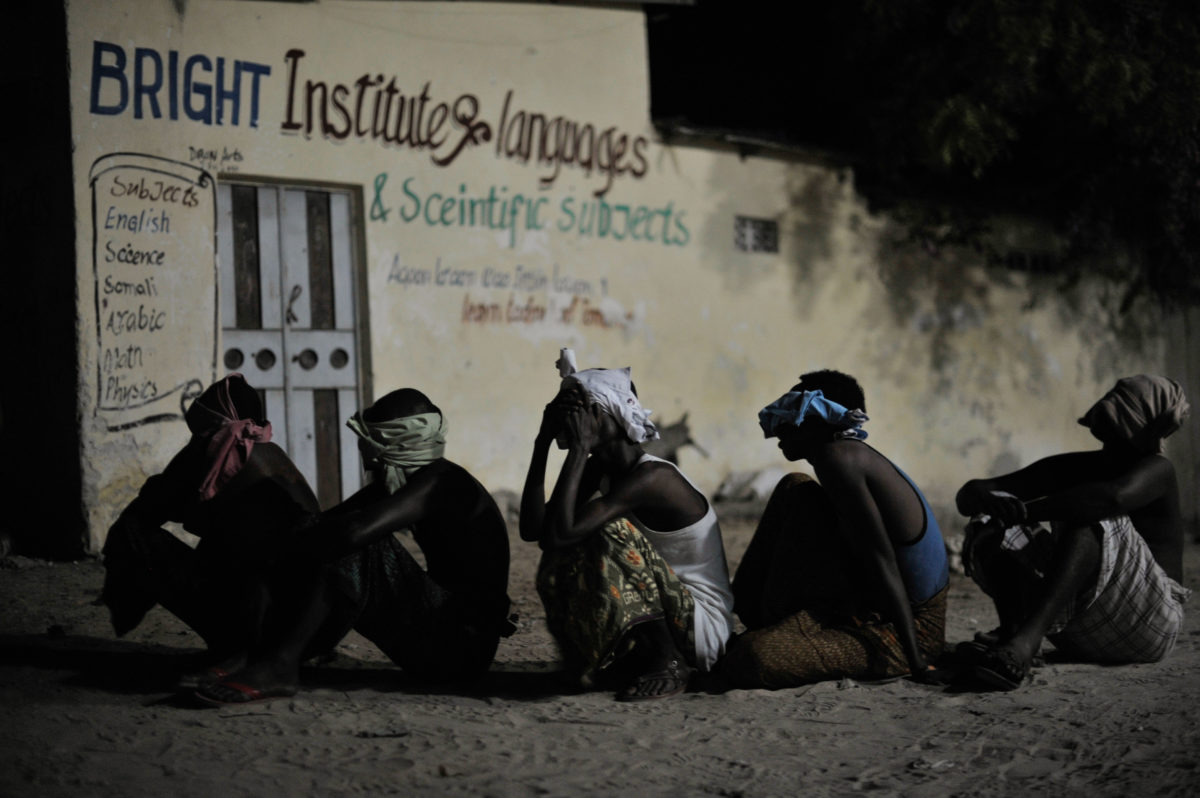In the shadow of world political events, one of the biggest offensives against terror in over a decade and a half is currently taking place in Somalia. For almost two decades, Al-Shabab, a terrorist organisation linked to Al Qaeda, has had a stranglehold on the country. International projects could not be implemented or could only be implemented at great cost, and the ongoing threat of terrorist attacks completely paralysed the country in some areas. Terror is thus one of the country’s greatest obstacles to development. However, the newly elected president is pursuing new ways of countering the terrorist threat. He is not only aiming for a military victory, but also for an ideological and economic ousting of the terrorist organisation. This strategy is beginning to show signs of success.
Domestic and regional situation created
Since 15 May 2022, the country has had a new president, Dr. Hassan Sheikh Mohamoud[1] and a new government since July. At the beginning of its term in office, the new government avoided the usual fighting rhetoric of its predecessors against Al-Shabab, but rather took a new approach, the president in particular. On the one hand, he supported the appointment of one of Al-Shabab’s founders and former spokesmen, Mukthar Robow (who publicly distanced himself from Al-Shabab in 2017), as Minister of Foundations and Religion. On the other hand, he made a series of foreign trips from the beginning to promote the upcoming offensive against Al-Shabab. These included countries such as Saudi Arabia and Egypt, as well as neighbouring Eritrea, Kenya, and Ethiopia. The previous president, Mohamed Abdullahi Farmajoo, was at odds with most of these countries.
Coordinated major offensive against Al-Shabab since late August 2022
At the end of August, three months after his election, a military offensive called by the president began against Al-Shabab. This offensive not only mobilised the military forces of the Somali federal government, troops of the federal states, clan militias, foreign units and, above all, citizens throughout the country, but also involved neighbouring countries. For example, it became more difficult for Al-Shabab to bring fighters, material or funding across the borders to and from Somalia. In this still ongoing battle, Al-Shabab has not only suffered large area losses, especially in Hir Shabelle and Galmudug, but also a very high number of casualties among its fighters. Therefore, this offensive is probably the largest and most coordinated military action against the terrorist group since the invasion of Ethiopian troops at the end of 2006.
But not only that. For example, alleged leaders and supporters of the movement are systematically subjected to international financial sanctions. Moreover, Al Shabab’s military defeats mean that they have lost control over large parts of the country. However, these were not only logistical bases for attacks in the capital, but also important sources of financial revenue in the form of levies and taxes from the civilian population. Besides these financial and the aforementioned military actions, religious action is also being taken against the terrorist group of currently about 5,000 men. The Somali government has banned the use of the name Al-Shabab and now calls them »Khawarij«, which roughly means “those who left”. This designation refers to the name given to (former) followers of the Prophet Mohammed who become apostates by committing grave sins and were therefore considered to deserve the death penalty. Included in this ban is also the prohibition to maintain contact with the Khawarij, to hide them or to spy for them. The government had previously secured this religiously through a conference of senior Islamic clerics, including Mukthar Robow, who had previously issued a fatwa against the group.
Game changer – Unity against terror?
With this new and multi-layered approach, the tide could therefore be turning in Somalia. Many observers see in particular in the interaction of state, religious and traditional forces and the support of international donors the chance that Somalia will free itself from the hostage of terror after all. One of the most important components in this process is the population itself. A mix between fear and sympathy has long made it possible for Al-Shabab’s influence to extend far beyond its military capabilities. The terrorist group has until now been able to draw on a large network of informants in all sectors of society. Beyond that, especially in recent years, an increasing infiltration of state and, above all, security structures by Al-Shabab supporters has been observed.
However, given the recent developments, Al-Shabab can no longer fully rely on this network. This is because the starting point of the offensive was popular uprisings against individual terrorist groups in Hiraan. These resistance movements were particularly opposed to high »taxes« and forced recruitment by the terrorist group. Similar uprisings by the population took place all over the country against local cells of the terrorist organisation, eventually being supported by regular forces. Al-Shabab has lost the support of the population in many cases making this the decisive factor for the liberation of Somalia from the influence of this terrorist group.
If the network in the institutions can now be won over to join the side of this growing offensive against Al-Shabab, this could be the beginning of a real war of independence within Somalia. This could possibly mean the end of terror in Somalia and lay the foundation for a lasting peace in the country.
The Al-Shabab myth is still alive
Nevertheless, this is not yet the case. Al-Shabab can still count on support in parts of the population. Its organisational nucleus goes back to the time when the Islamic Courts were formed. After the collapse of the military dictatorship under Siad Barre, years of war followed between militant remnants of the regime, who increasingly sorted themselves according to clan affiliation. Warlords who claimed to represent superior clan interests dominated the everyday life of the people, but were often mere war entrepreneurs. As early as the early 1990s, the first so-called Islamic Courts emerged from the middle of society and wanted to counter the arbitrariness of the warlords. Religious men of integrity from local communities thus became judges, armed only with the support of the population and their faith. Later, the Islamic Courts had their own military units, which managed to bring large parts of Mogadishu, but also other areas of the country, under their control. Only later did Al-Shabab emerge from some of these militias. The following decade between 1997 and around 2006 is considered quite stable. Many parameters, such as food supply, health care or infant mortality, developed better than in the last years of the dictatorship. Within Somalia, the period of the Islamic Courts is therefore also regarded positively. They were a form of social self-regulation in an otherwise chaotic world. They created a form of justice and structures where the known had fallen apart. The myth of good intentions was born.
How does Al-Shabab react to the offensive?
The strength of the terrorist organisation’s network can still be seen in the reactions to the latest offensive. Although the organisation suffered painful losses in the hinterland, it also managed to carry out some spectacular attacks in Mogadishu. On 19 August 2022, for example, the well-known Hayat Hotel in Mogadishu was besieged for around 30 hours and almost completely destroyed. More than 20 people were killed and more than 100 were injured. On 29 October 2022, a foiled attack on the Ministry of Education killed over 100 people; on 5 November 2022, a suicide bomber attacked a recruitment facility, killing 5 young men; and at the end of November, the Rose Hotel in the government district, very close to the presidential palace and popularly used by politicians, was attacked and besieged for hours, killing 9 people.
How do things go on?
Whether the government’s strategy will work remains to be seen. It is to be wished for the country. To the government’s credit, it has achieved a rarely seen unity of all Somali actors and also of the population in the fight against terror. However, military successes alone will not convince the people. Measures must be taken to achieve rapid prosperity in the liberated areas. Long-term success can only be achieved if a strategy is developed to deal with the supporters of terror in the state institutions. The recent attacks cannot have been planned and carried out without help from within. The government must therefore be very careful not to lose the support from the population in the capital despite its victories in the hinterland. The (invisible) enemy in its own backyard must be defeated, as must the scattered terrorist cells all over the country. One thing can already be said today: There will be no co-existence with terror. It is therefore also in the international interest that the people’s uprising against Al-Shabab is successful.
René Brosius is currently a PhD student in Law at the University of Bayreuth. He first studied Modern and Contemporary History, Sociology and Political Science at the Humboldt University to Berlin and later changed to Law at the same university. He passed his 1st and 2nd state examinations in Berlin. While still a student, he worked in the German Bundestag as a research assistant at the interface between politics and administration. During this time, he specialised in the areas of special administrative Law and European Law. After his studies, he joined the judicial service of the State of Hesse in 2009. Since February 2020, he has been working in the Hessian State Chancellery. In his doctoral thesis, he examines the question of the transferability of state structure principles of the German Basic Law to Somalia.
[1] https://africanlegalstudies.blog/2022/06/10/on-a-difficult-mission-somalia-elects-hassan-sheikh-mohamud-as-the-new-president/

